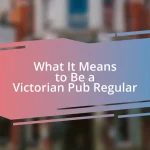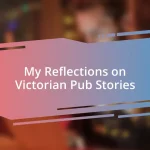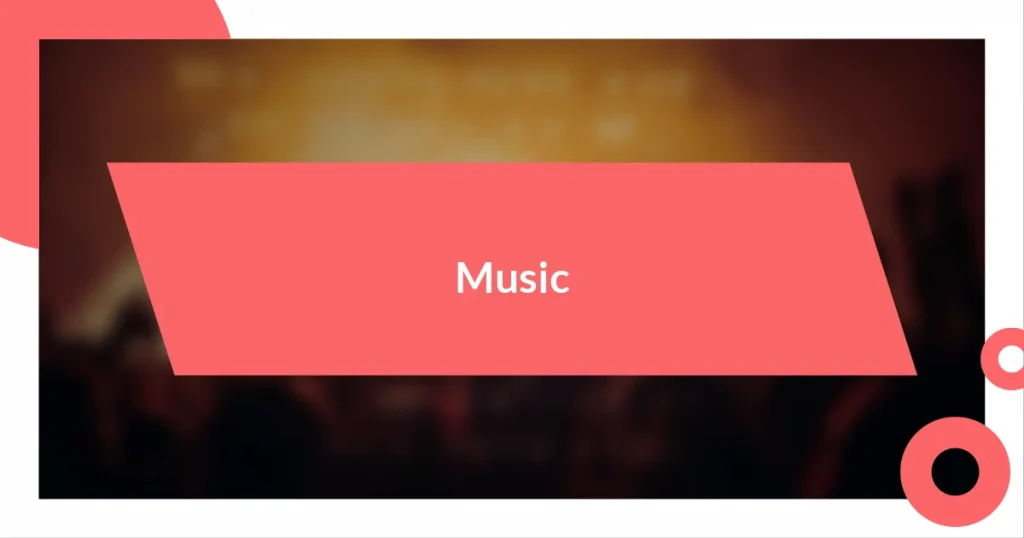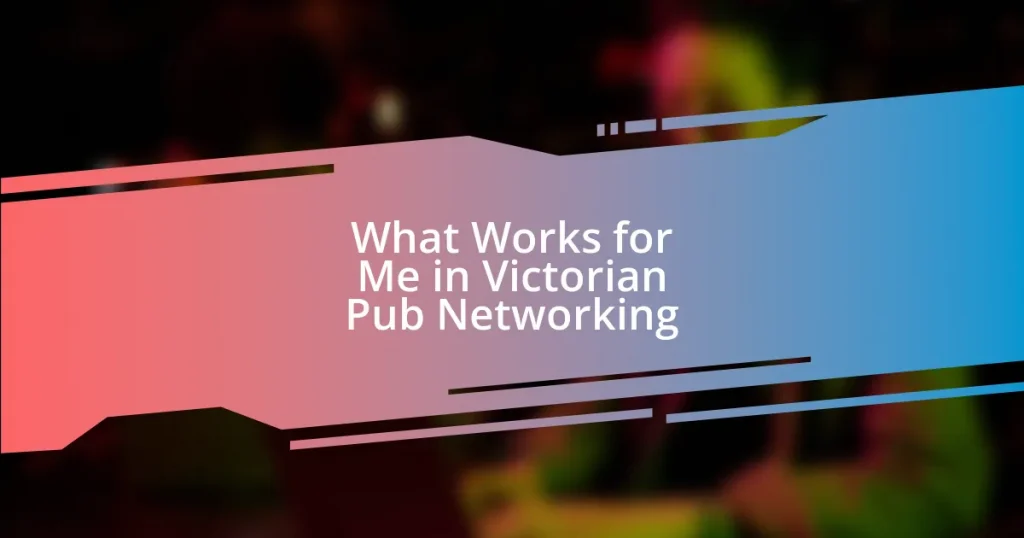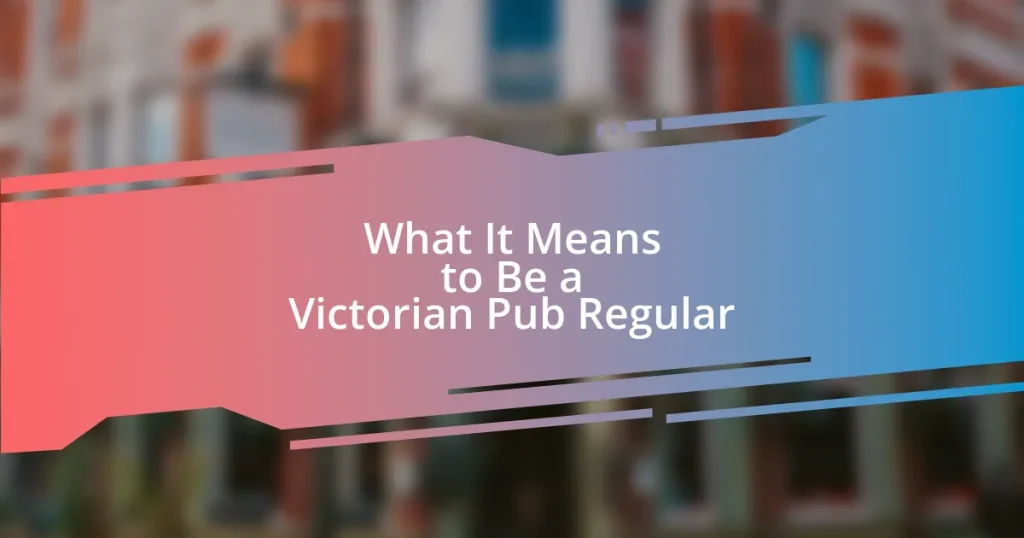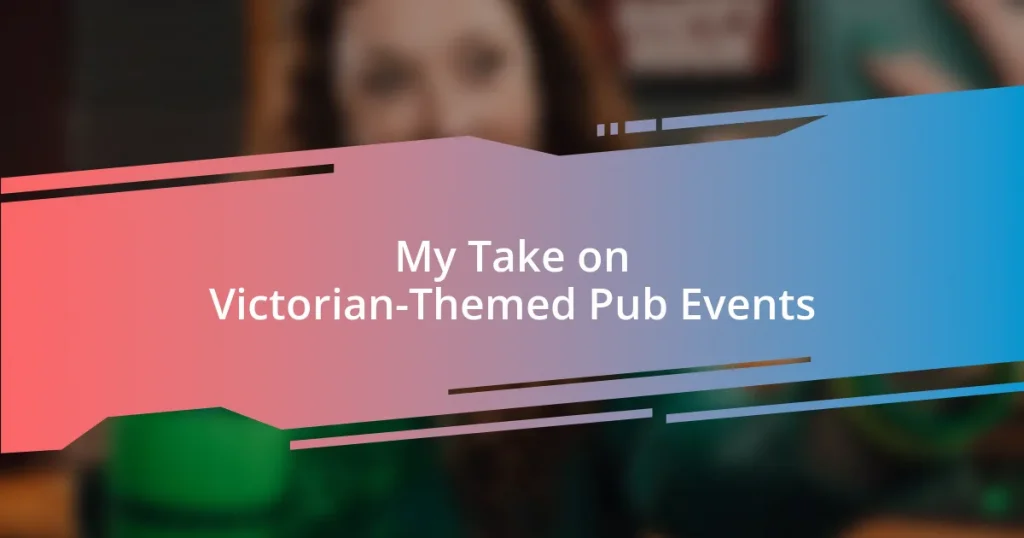Key takeaways:
- Wine tasting events foster community connections and offer educational opportunities about wine and terroir.
- Understanding various wine types enhances the tasting experience, revealing different flavors and moods associated with each variety.
- Engaging with winemakers adds depth to the tasting experience, providing insights into the winemaking process and personal narratives behind each bottle.
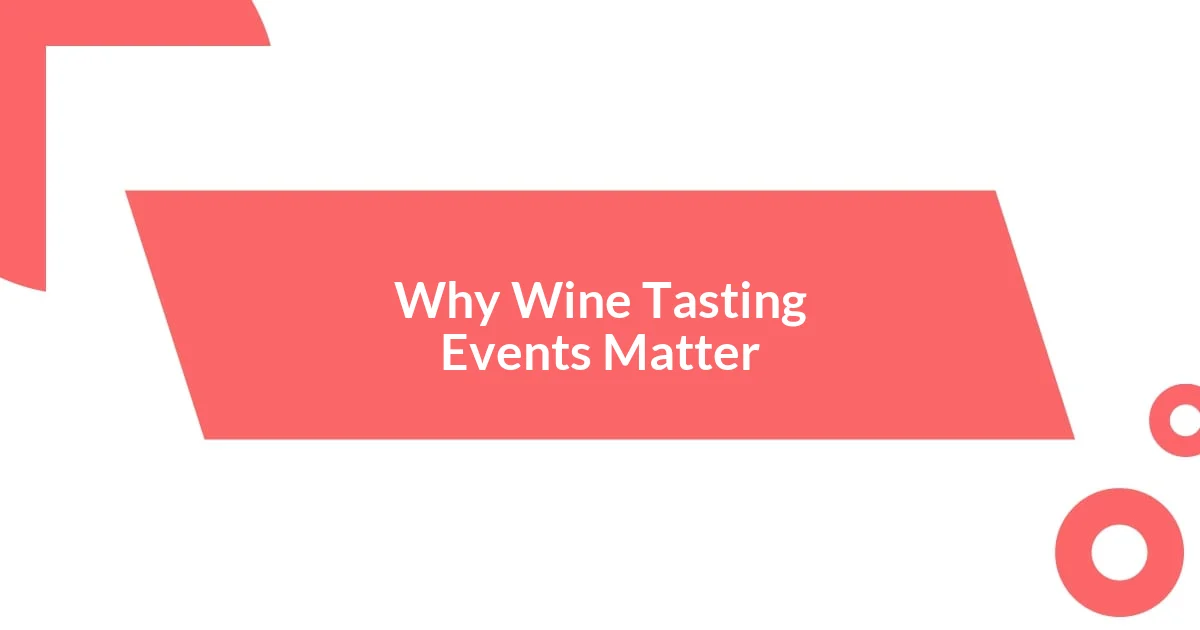
Why Wine Tasting Events Matter
Wine tasting events matter for so many reasons, and one of the most significant is the community they foster. I remember attending a small local tasting where I struck up a conversation with a fellow wine lover over a shared bottle of Chianti. It was amazing how a simple glass of wine brought us together, leading to a lively discussion about our favorite vineyard trips. Have you ever found unexpected connections like that over a drink?
These events also provide a unique opportunity for education. At one tasting, a knowledgeable sommelier guided us through various wines, explaining how terroir—the environment where grapes are grown—can profoundly affect flavor. I left that evening not just with a newfound appreciation for the wines but also with a deeper understanding of what makes each bottle special. Isn’t it fulfilling to walk away from an event with more than just good memories?
Moreover, wine tasting offers a sensory adventure that extends beyond just the drink itself. The aromas, colors, and even the atmosphere can evoke emotions that take you places. I still vividly recall the serene setting of a vineyard as we sampled a pinot noir while watching the sun set—an experience that lingered long after the last sip. Isn’t it true that such moments can transform an ordinary evening into something truly memorable?
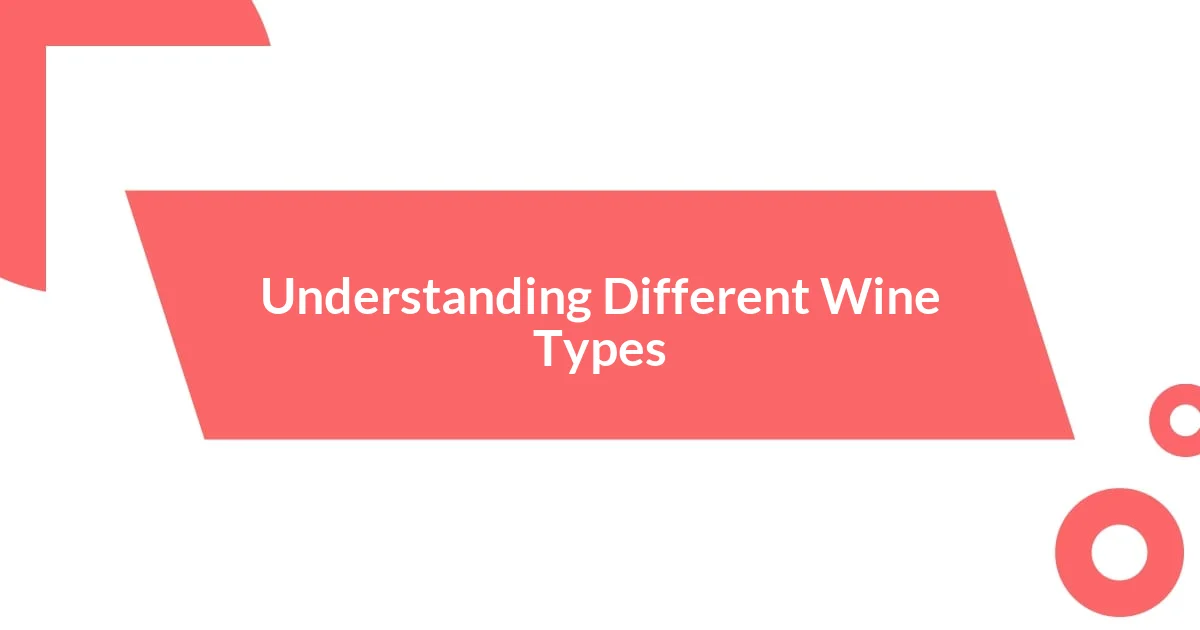
Understanding Different Wine Types
When I think about wine types, I can’t help but remember my first encounter with a robust Cabernet Sauvignon. The boldness of that wine didn’t just captivate my taste buds; it unveiled a whole new universe of flavors. Each sip revealed layers of dark fruit and hints of oak that encouraged me to delve deeper into its profile. Have you ever been surprised by how one wine can lead you to explore a newfound passion?
On the other hand, tasting a delicate Riesling opened my eyes to the charm of lighter varieties. Its sweetness juxtaposed the complex dryness of red wines I usually favored. Sharing a glass with a friend as we soaked up the sun during a late afternoon picnic was a delightful experience. Isn’t it fascinating how a single variety can embody different moods and occasions?
When we start to compare these wine types, the distinctions become even clearer. This table highlights the fundamental characteristics of various wines, simplifying the exploration process for enthusiasts just like us.
| Wine Type | Taste Profile |
|---|---|
| Cabernet Sauvignon | Bold, full-bodied, dark fruit flavors with notes of oak |
| Riesling | Fruity, floral, often sweet with high acidity |
| Pinot Noir | Lighter-bodied, red fruit flavors, earthy notes |
| Sauvignon Blanc | Crisp, refreshing, with citrus and green herb notes |
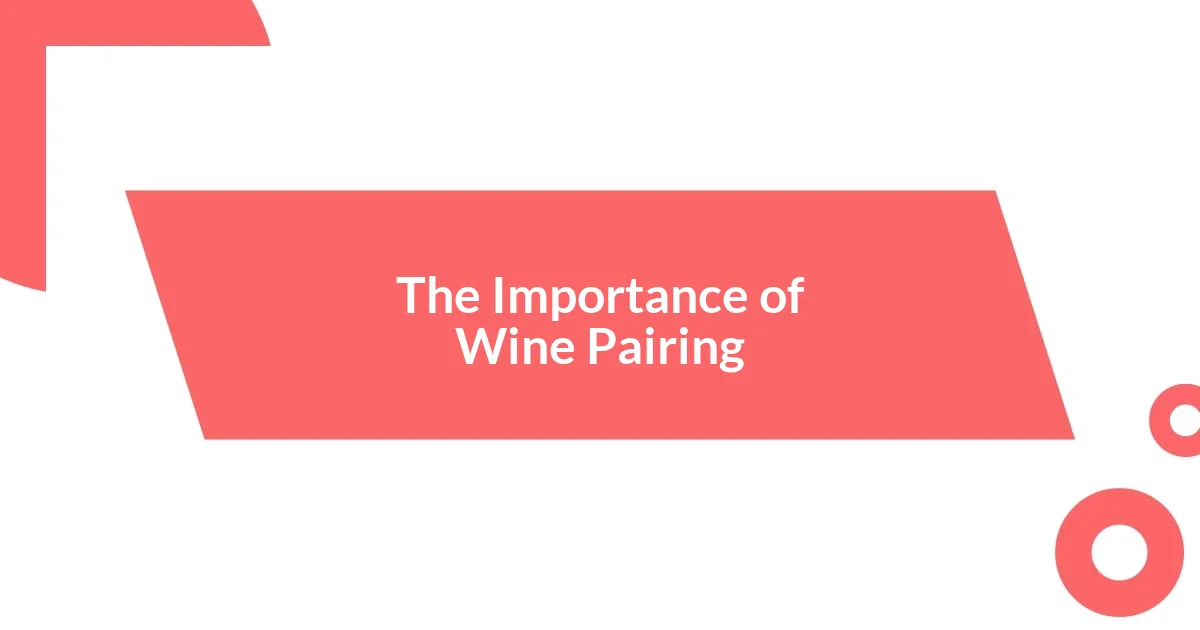
The Importance of Wine Pairing
When I think about the significance of wine pairing, I can’t help but recall an unforgettable dinner where a carefully selected Merlot elevated a simple pasta dish to another level. The smooth tannins complemented the tomato sauce perfectly, creating a harmonious balance that I hadn’t experienced before. It made me appreciate how the right pairing can amplify flavors and transform an ordinary meal into a dining experience.
Consider some key factors that highlight why pairing is so essential:
- Flavor Enhancement: The right wine can enhance flavors in food, making both the dish and the drink more enjoyable.
- Texture Balance: Pairing wine with food can create a delightful contrast in textures, adding another layer to the tasting experience.
- Culinary Exploration: Different pairings invite you to explore regional cuisines and the stories behind them, enriching your culinary journey.
I often find myself experimenting with food and wine combinations at home. One evening, I paired a crisp Sauvignon Blanc with grilled shrimp tacos, and it was incredible how the citrus notes of the wine highlighted the freshness of the dish. Moments like that remind me that the journey of discovering wine can be just as thrilling as sipping the final glass.
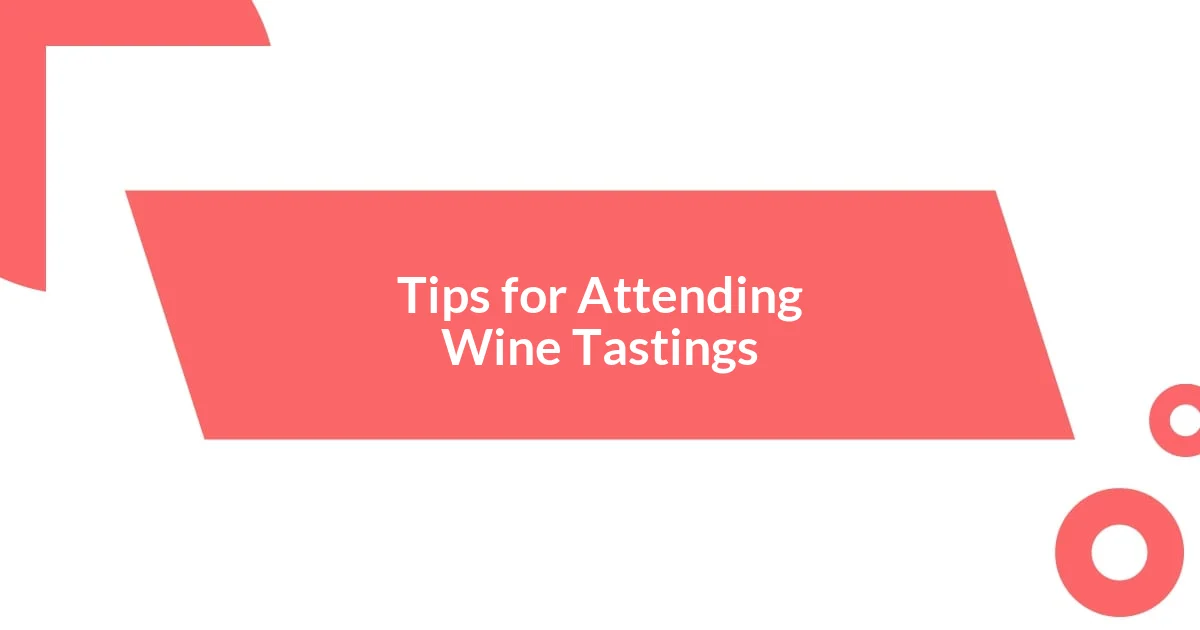
Tips for Attending Wine Tastings
Wine tastings can be a delightful experience, but a bit of preparation can make them even more enjoyable. One key tip I’ve learned is to arrive with an open mind. I remember attending my first tasting, feeling intimidated by all the wine enthusiasts around me. Once I let go of my pretenses and embraced the experience, I discovered flavors I never knew existed. Can you recall a moment when you surprised yourself by trying something new?
Also, don’t forget to pace yourself. It’s tempting to jump from one tasting to another, especially when you discover a wine you love. I made that mistake once, swirling and sipping too quickly, only to find myself overwhelmed rather than enlightened. Taking the time to savor each glass allows your palate to fully appreciate the unique qualities of each wine. Isn’t it amazing how slowing down can lead to a more profound appreciation of what you’re drinking?
Lastly, engage with the staff or fellow attendees. I’ve often found that the best insights come from conversations sparked during tastings. Sharing thoughts about what flavors you detect or asking the staff about their favorites can lead to unexpected discoveries. One time, a simple question about a wine’s origin led me to learn about a fascinating vineyard’s history. What stories might you uncover during your next tasting?
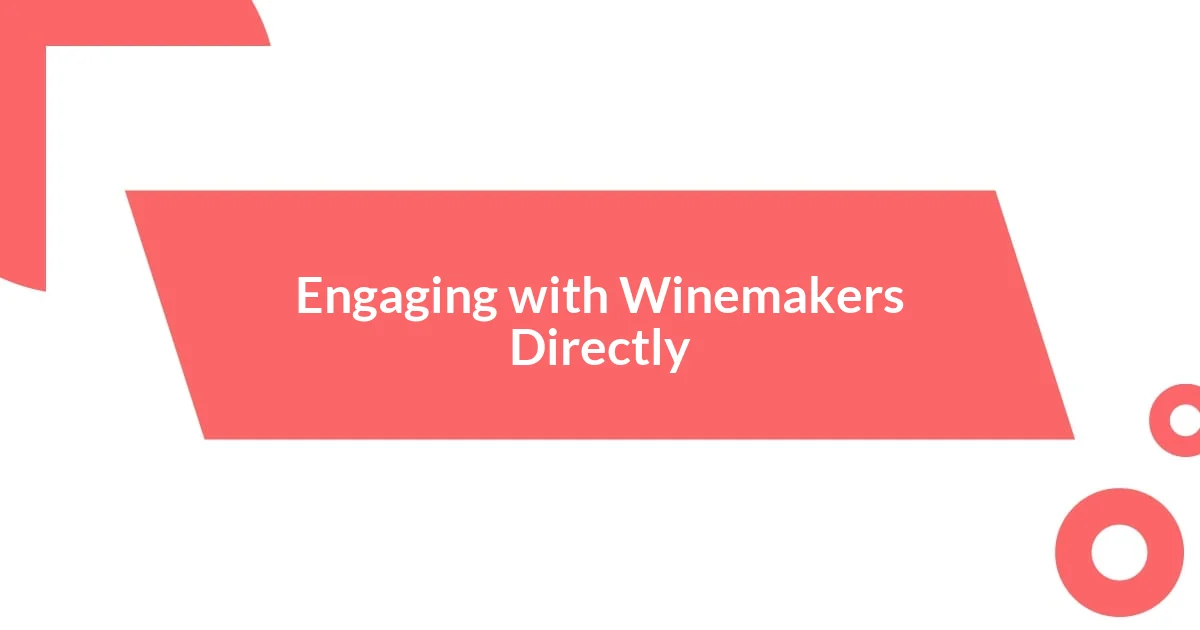
Engaging with Winemakers Directly
Engaging with winemakers can truly elevate the wine tasting experience. One of my most memorable moments was chatting with a winemaker who shared his passion for sustainable farming practices. His excitement was palpable as he described how each grapevine holds a unique story influenced by the land it’s grown in. Have you ever felt that connection between the person behind the wine and the bottle you hold in your hand?
When I speak with winemakers, I appreciate the opportunity to ask questions that dive deeper into the winemaking process. I remember inquiring about the fermentation choice for a particular Cabernet Sauvignon and found out that it was aged in French oak barrels. The winemaker explained how that decision contributed to the wine’s rich, complex flavors. Isn’t it fascinating how every choice impacts what ultimately ends up in our glass?
There’s something incredibly satisfying about tasting a wine while hearing the winemaker’s personal narrative. That blend of history and artistry makes the experience much more meaningful. After visiting a small winery, I tasted a limited-release Chardonnay while the winemaker recounted the challenges and triumphs of that year’s harvest. It added a layer of appreciation that’s hard to replicate. How do you feel knowing that your glass of wine carries the essence of someone’s hard work and dedication?

